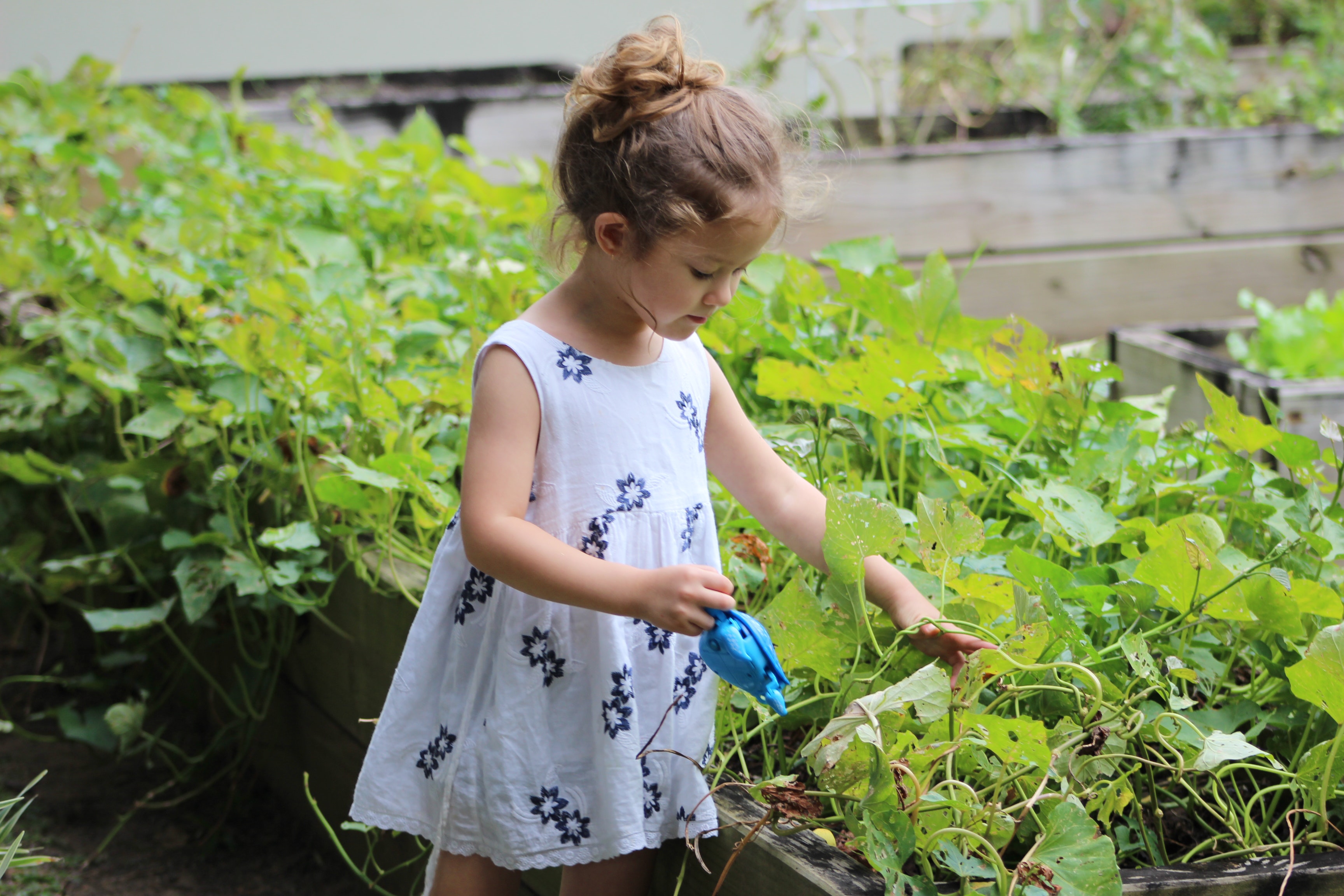There’s a lot to be learned from an activity such as gardening. There’s more to it than meets the eye. You and your child can bond as you create something beautiful, and help your child learn a lot of new things along the way.
Being outside in the sun and fresh air is something we can all agree is wonderful and healthy. It’s part of the reason hobbies like gardening are so refreshing. But, it can get dull and repetitive when you’re out in the backyard all alone. Why not bring your kids along and have them help you out? It might be more beneficial than you think. There’s a lot that gardening can offer both you and your child. Here are a few benefits to keep in mind.
It makes for engaging exercise
Gardening is hardly seen as a tough physical activity. At first sight, it seems like casual and leisurely fun you can do in the warm sun without breaking a sweat. Looks can be deceiving, though. Anyone that enjoys the fine art of gardening will tell you that it can be grueling work at times. It all depends on how you set the pace for your gardening and how quickly you want something done.
This is why gardening can be the perfect exercise for all ages. Both you and your kids can enjoy planting new flowers or vegetables while working up a bit of sweat. You can do all the heavy lifting and exert yourself while your kids start off slow and work their way up to more challenging tasks. Sometimes you need to pull weeds and other times you need to transport lots and lots of dirt. It can really get the blood pumping and provide you with a healthy dose of outdoor exercise.
Most importantly, gardening gives you a healthy amount of regular exercise. You need to take care of your garden on a near-daily basis. It’s not all that difficult of a job, either. Your kids are taught to exercise on a regular basis without even knowing it! This lesson will help push them toward a pattern of healthy activity later on in life.
It creates a strong work ethic
There’s nothing quite like looking at your garden and seeing all of your hard work paying off. It’s a sight to behold, even though creating it is quite a hassle. This is part of the charm of gardening. You work hard and produce attractive and practical results that you can enjoy throughout the season. It tells you that you can create something beautiful with a little bit of hard work and dedication. This kind of lesson is something that you should be teaching your children.
There’s a lot to be learned through gardening efforts. Without a strong work ethic, many plants in your garden will wither away and dry up before you can say “spring’s over”. Children aren’t always familiar with the concept of effort and long-term rewards, as they’re a bit too young to have experienced these types of things. Gardening brings them closer by introducing them to an effort and reward system that shows results rather quickly.
Through gardening, you can teach your kids a little life lesson about work ethic without even having to say much. Paying attention to details and working hard to maintain something pays off. It’s a lesson that often needs to be revisited, so keep in mind that it’s also a great reminder for yourself.
It provides relaxation
While gardening may be hard work in many aspects, it’s also a pretty relaxing activity when you get down to it. You’re in the fresh air, enjoying some quality time with your child, and there’s no rush to get anywhere. This can create a kind of “Zen” moment that many gardeners aim for. You can clear your head and not let anything get to you. It’s therapeutic in a way.
The relaxing properties of gardening stretch far beyond the physical act of working on your garden. You actually get lower cortisol levels when you garden in your backyard. There are a lot of factors that go into this. For one, you’re surrounded by nature and you’re actively coming into contact with dirt, plants, leaves, etc. This kind of natural environment calms you and makes it a lot easier to relax your mind. At the same time, you’re in familiar territory and working on tasks that don’t require a lot of mental exertion. It’s a casual and relaxing activity that taps into our primal love of nature and natural environments.
Your kids might not necessarily need the relaxation, but it can’t hurt. The time spent alone surrounded by nature will be good for them either way. They’ll get accustomed to the serene nature of gardening and it will come in handy when they grow up. Plus, your presence will make it easier for them to learn how to garden without being nervous or stressed out.
It improves focus
If you and your child garden on a regular basis, you’re going to see more than just relaxation and physical improvements. There are also a lot of mental benefits that come with regular gardening. For one, you can improve your memory and focus by consistently participating in this activity.
How this works is somewhat of a mystery, but the results speak for themselves. There’s a reason that horticulture therapy is a legitimate way to rehabilitate cognitive functions. It has long been considered an effective therapeutic treatment for a variety of different illnesses.
Other than treating common cognitive problems, gardening can help children develop mentally. It helps increase their focus and alertness throughout the day. One of the more common ailments that children suffer is attention deficit hyperactivity disorder, more commonly known as ADHD. Gardening can help relieve the symptoms of this disorder and make it easier for your child to focus when they need it. Let’s not forget, outdoor activities, in general, are considered very effective at improving overall memory. This only adds to the mental development benefits for your child.
It’s loads of fun

Gardening is rarely seen as a very fun and exciting activity. It’s more often put in the category of chores and household activities. After all, you’re taking care of the backyard and trying to make it look neat and attractive. However, it really depends on the mindset that you have when you get into gardening.
It’s more like decorating and designing the backyard than anything else. You’re trying your best to create an attractive and practical garden that you can enjoy throughout the seasons. While you might be doing a lot of hard work and cleaning, it’s still a part of the creative design process of the garden.
Like many other activities, gardening with someone else is a lot more fun than doing it all on your own. This is especially true when you garden with your little bundle of joy. It can be pretty fun for the children themselves. There are lots of casual gardening activities you can leave to your child that will let them have some fun.
Watering plants is a great example. It’s not too physically demanding and your kid doesn’t have to exert themselves too much. Watering with a watering can be a bit too dull of an activity, but there’s a better way to get those plants the moisture they need. Using a high-pressure water sprayer is a lot simpler and more convenient. Plus, it’s tons of fun to use it like a gun that sprays water. Kids can have endless fun with one, while still helping and being productive.
It encourages healthier eating
Gardening doesn’t just provide you with something nice to look at, it also gives you something concrete to put on your plate. When you plant vegetables and fruit in your garden, you’ll get quite a bit of food out of it. More importantly, you get lots of healthy, homegrown food that is tastier than store-bought versions.
This is an often-underestimated benefit of regular gardening. You can get some nice and healthy meals ready with just the things you’ve grown in your garden. It’s a hassle growing the vegetables, but once they’re ready to eat, you’d much rather use them than go to the store. This starts looking more appealing the more you get used to growing and eating them.
It’s something that your child could get used to, especially if they’ve put their own effort into maintaining the garden. Studies have found that children who were involved in hands-on gardening usually develop a liking for home-grown fruits and vegetables. It makes sense when you think about it. The constant exposure to a natural environment and the growing fruits will work up an appetite for these kinds of products. This can favourably affect their dietary choices throughout their lives, making way for a healthier diet and lifestyle.
It engages the senses
What’s the first thing that comes to mind when you think about gardening as an activity? It’s probably the smell of fresh air and different flowers and plants. On the other hand, you could make a case for the warm touch of the sun’s rays on your skin. It could also be the colourful display of flowers that you can see while cleaning your garden. The chirping of birds and the sound of water flowing from a hose or sprinkler are also great contenders.
While gardening, all of your senses are engaged. You get to enjoy a wealth of sensations from your home’s natural outdoor environment. This is something that can be very beneficial to the development of your children. They are naturally curious, and giving them new sensations to experience is a great way for them to learn about the environment around them.
The kids can grasp the concept of gardening and how it works, while also getting a better understanding of nature and how it feels. It might not seem like much to someone who has already experienced a wealth of natural scents, views, and sounds, but it’s a whole new world from your child’s perspective.
Conclusion
There’s a lot to be learned from an activity such as gardening. There’s more to it than meets the eye. You and your child can bond as you create something beautiful, and help your child learn a lot of new things along the way. It’s a hobby that helps both of you develop in many ways, giving way for a healthier relationship between parent and child. Keep that in mind the next time you need to maintain your garden.


Join the conversation!